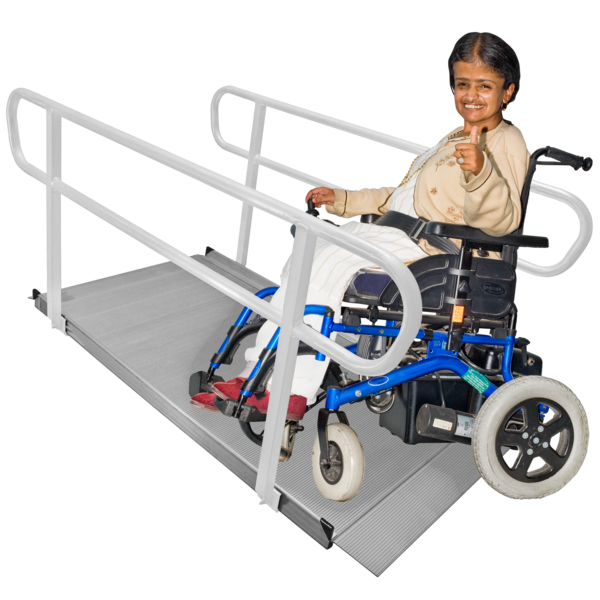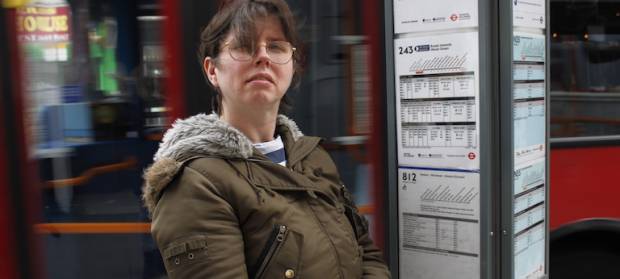What we think
We believe people with a
learning disability
 A learning disability is to do with the way someone's brain works. It makes it harder for someone to learn, understand or do things.
have the right to use public transport like people without a disability can. Transport should be safe, affordable and
accessible
A learning disability is to do with the way someone's brain works. It makes it harder for someone to learn, understand or do things.
have the right to use public transport like people without a disability can. Transport should be safe, affordable and
accessible
 Accessible means something is easy for people to use or join in with. For example: Accessible writing means the writing is easy to read and understand.
for people with a learning disability.
Accessible means something is easy for people to use or join in with. For example: Accessible writing means the writing is easy to read and understand.
for people with a learning disability.
We want people with a learning disability to:
- be able to access all public transport services
- get the support they need to use public transport
- be able to afford public transport
- feel safe and comfortable when using public transport.
There are many ways that you can get the right support when travelling, and we’ve broken this down below by transport type.
Your rights to support on trains
Disabled People’s Protection Policy (DPPP)
You have a right to travel by train, which is protected by every train company’s DPPP.
The DPPP explains how the train company supports people with a learning disability (and other disabilities) to use their stations and trains.
Each train company must produce a DPPP and you can get a copy from the company’s
website
 A website is a page you can go to on the internet like Google or YouTube.
.
A website is a page you can go to on the internet like Google or YouTube.
.
Staff support on trains
If you have a learning disability that causes mobility issues when you travel you can contact National Rail ahead of your journey to arrange any support you think you’ll need from staff.
You can also check if a station has accessible facilities.
Your rights to support on buses and coaches
Bus and coach drivers must by
law
 Laws are the rules that everyone in the country has to follow. If you don't follow the rules you can get in trouble with the police.
give reasonable assistance to people with a disability. This means things like helping you get on and off a bus, but not physically lifting you or lifting heavy equipment.
Laws are the rules that everyone in the country has to follow. If you don't follow the rules you can get in trouble with the police.
give reasonable assistance to people with a disability. This means things like helping you get on and off a bus, but not physically lifting you or lifting heavy equipment.
If you need help to get on and off a coach, it’s best to ask for this when you book your ticket so that the support you need is arranged in advance - then you can relax and enjoy your trip.
Your rights to support in taxis and minicabs
You can book a minicab or private hire vehicle in advance, or you can wave down a taxi on the street. All taxi and minicab drivers must make reasonable adjustments to their service to make your journey easier.
If you use a wheelchair, many licensed taxis in larger cities have to be wheelchair accessible. All black cabs in London are now wheelchair accessible, and if you use a hearing aid, some newer models have
induction
 An induction is when someone shows you where things are and what you need to know. You will get an induction if you start a new job at Mencap.
loops and intercoms.
An induction is when someone shows you where things are and what you need to know. You will get an induction if you start a new job at Mencap.
loops and intercoms.
Assistance dogs
You have the right to travel with your assistance dog in taxis and minicabs, unless the driver has an exemption certificate because of an allergy to dogs. You’ll see a yellow ‘Notice of Exemption’ sign on their vehicle windscreen if this is the case.
Taxi drivers cannot charge you extra for your assistance dog - it’s illegal for them to do so, and could cost them a £1,000 fine.
Taxi and minicab drivers are trained to identify assistance dogs by their harness or identification jacket, so make sure your canine companion is wearing this when you travel. If you have an identification card for your dog, it’s a good idea to carry this with you too.
If your dog causes any damage to the taxi, you’ll possibly be asked to pay for repairs, so make sure your dog is on its best behaviour.
Your rights to support at airports
If you have a learning disability that affects your mobility when you travel in European airports, you have the right to:
- support with entering the terminal from the car park or other transport interchanges
- support with finding your check-in desk and support with registration
- support with moving through the airport, including to toilets if you need it
- two items of mobility equipment free of charge
- travel with your assistance dog. (See the rules on taking your pet abroad).
Staff support at airports
If you have a learning disability that causes mobility issues when you travel, contact your airline or airport at least two days before your flight to arrange any support you’ll need. Ask if they have the facilities you need, such as an accessible toilet.
If you use a wheelchair, arrange for special assistance at least two days ahead of your trip. Your wheelchair will be stored in the hold, not in the cabin with you, so the airline or airport will arrange the appropriate support for you to get on and off the plane.
If you experience discrimination on public transport
If you experience any problems or
discrimination
 Discrimination is when someone is treated differently (usually in a bad way) because of things like their disability or their
religion
Discrimination is when someone is treated differently (usually in a bad way) because of things like their disability or their
religion
 Religion is to do with the things you believe about the world. For example you may believe there is a god or something else. Examples of religions are Christianity, Hinduism, Islam and Judaism.
.
while using public transport, reporting them and registering a complaint can help you and others to get the service you are entitled to.
Religion is to do with the things you believe about the world. For example you may believe there is a god or something else. Examples of religions are Christianity, Hinduism, Islam and Judaism.
.
while using public transport, reporting them and registering a complaint can help you and others to get the service you are entitled to.
Disability charity Scope have a helpful guide to making a complaint about transport, or if you live in the London area, you can call Transport For All for free advice on 020 7737 2339.
The Learning Disability Helpline is our free help and advice line.
Our team can offer advice, information and discuss what support Mencap can offer tailored to your needs, in your area.
